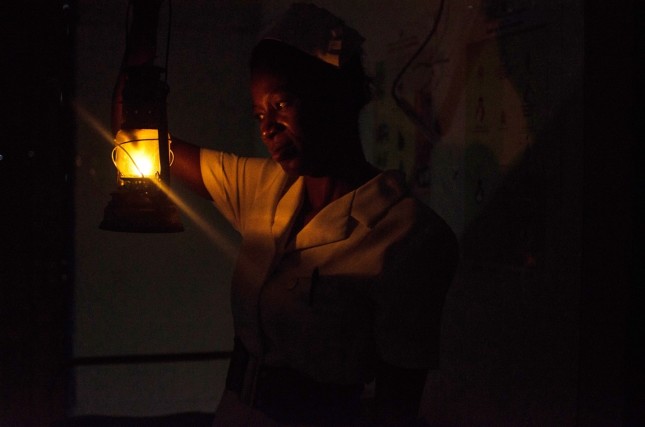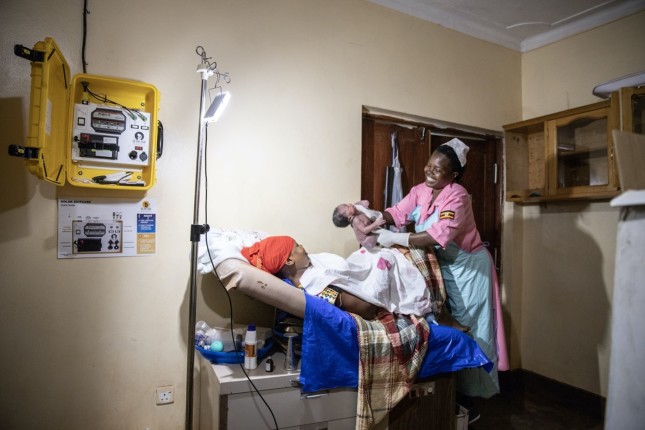-
Solar Suitcases for Safe Delivery
July 19, 2023 By Laura Stachel
Imagine trying to perform a C-section, or conduct a delivery, in a hospital with no light.
For hundreds of thousands of health workers, this is the reality they face each night. Close to 300,000 women and one million newborns (primarily in sub-Saharan Africa and Southeast Asia) die from complications of pregnancy and childbirth each year. Hemorrhage, infection, eclampsia, obstructed labor, and unsafe abortion cause the majority of obstetric deaths— many of which could be prevented with access to timely emergency obstetric care.
Yet, one factor determining the quality of care in such situations is often overlooked: power supply. Light and electricity are critically important for maternal-newborn care, and still 59% of health facilities in low-and-middle income countries lack reliable electricity. In sub-Saharan Africa, the WHO reported that 72% of facilities lacked reliable electricity; while 26% had no electricity at all.
Without continuous electricity, health workers are unable to provide prompt, high-quality maternal and newborn care. Midwives struggle by candlelight or kerosene lanterns, hospitals postpone or cancel C-sections and other procedures, and patients are turned away at night.
Health workers describe their inability to monitor or treat complications and the personal hazards of working without good visibility, including contamination and injury. Low-income patients in these settings fear nighttime care and are deterred by health worker requests to pay for candles, kerosene, or batteries. Many women deliver at home, unattended, increasing their risk of complication and death.

Shining a New Sort of Light
In many regions challenged by a lack of consistent power supply, there is one resource that is plentiful: sunlight.
Harnessing that resource is the aim of We Care Solar – a nonprofit seeking to promote safe motherhood and reduce maternal mortality in frontline health facilities by providing health workers with solar power for lighting, mobile communication, and medical devices. That is why the company has designed We Care Solar Suitcases – a compact environmentally-friendly power source – and delivers them to last mile health centers.
The Solar Suitcase includes medical-surgical lighting, phone charging, a fetal heart rate monitor, an infrared thermometer, and 12 VDC charging capacity for other devices. This technology allows midwives and doctors to diagnose and treat complications as they unfold, call for emergency help when needed, and perform critical procedures without delay.
Enhancing the quality of care in frontline health centers with clean, renewable energy also promotes sustainable development goals for poverty alleviation, improved health care, energy access, gender equity, and climate action.
We Care Solar’s technological solution to this pressing issue is part of its vision of a world where all women survive childbirth, obtain life-saving care without unnecessary delays, and give birth with dignity in well-lit health facilities. The company’s Light Every Birth initiative has the goal of eradicating energy poverty in maternal health facilities, targeting countries with high rates of maternal mortality and inadequate energy access.
The aim of this initiative is to build a global community founded on three fundamental beliefs:
- Every woman has a right to a safe delivery.
- Every health center is entitled to reliable light and electricity.
- Renewable energy offers an immediate and sustainable solution to this global challenge.
A well-lit clinic transforms and benefits entire communities. Families are more likely to seek skilled care from facilities with electricity where health providers can provide timely, safe, and appropriate care. In facilities that might otherwise be dark, the power of a Solar Suitcase means that midwives are more likely to attend to patients throughout the night and remain on duty for other emergencies. Health worker safety and morale are also improved.
Improving conditions in this way can make a huge difference. Saving the life of a mother impacts her children, her family, and her community. When a mother survives childbirth, her newborn is more likely to survive the first year of life. Her children are more likely to attend school and be well nourished. She can be productive for her family and village. Healthy communities depend on the health of mothers and children.
Author: Laura Stachel, MD MPH DrPH, Executive Director and Co-Founder, We Care Solar
Sources: Global Health: Science and Practice; The International Journal of Hygiene and Environmental Health.
Photo Credit: Cover: Woman lighting a lantern. In-Text: Health worker delivering baby with the use of solar kit. Credit: We Care Solar
 A Publication of the Stimson Center.
A Publication of the Stimson Center.




